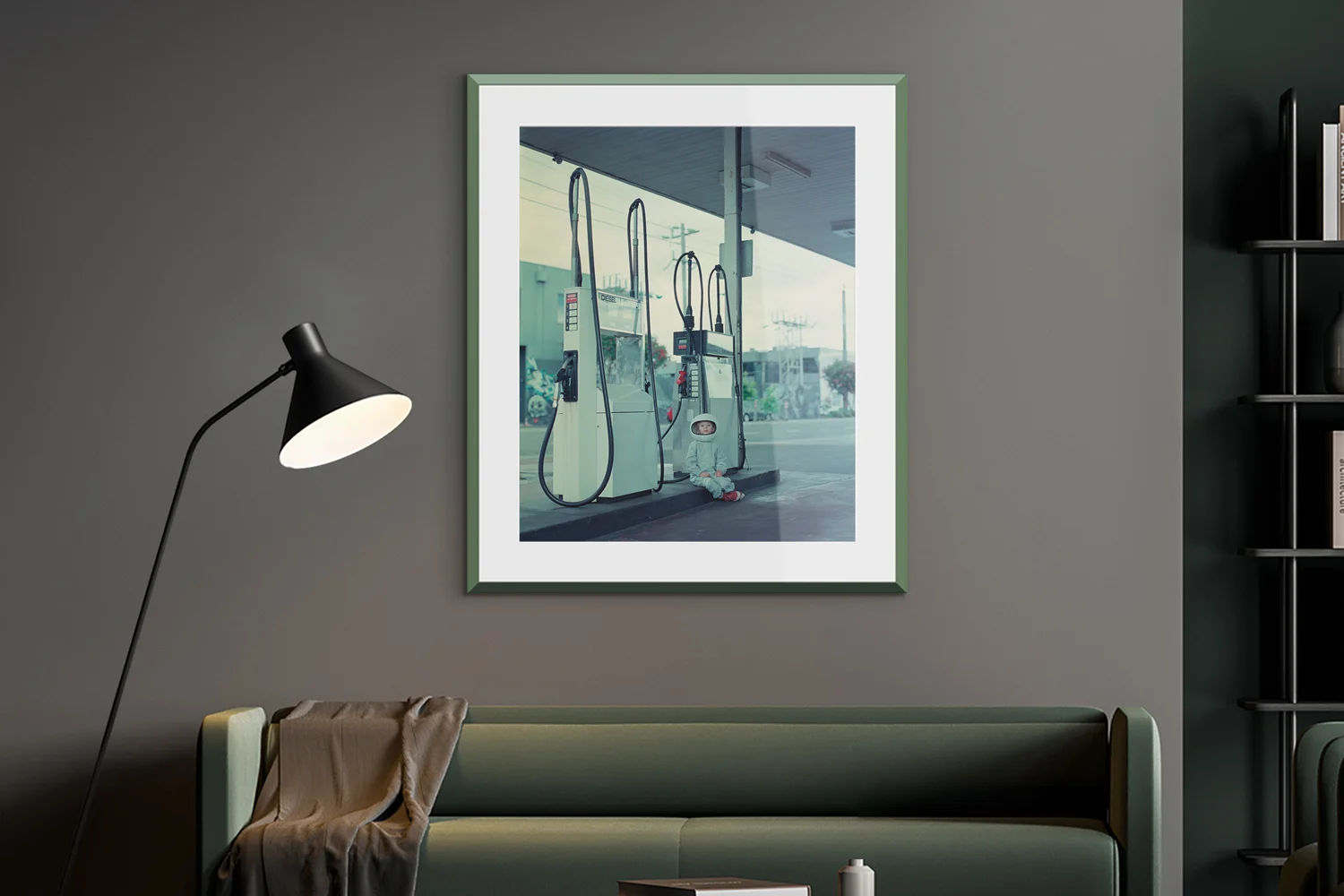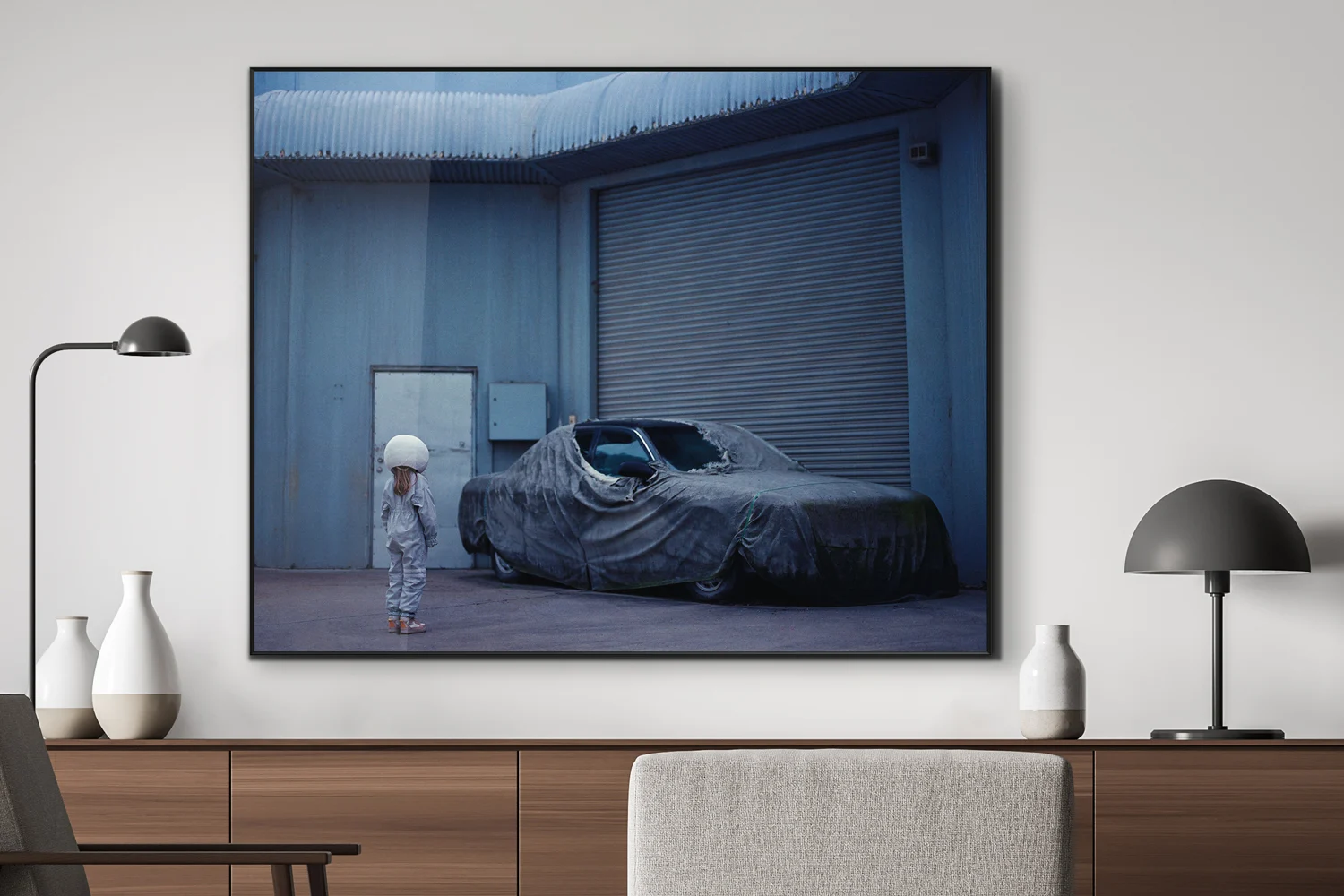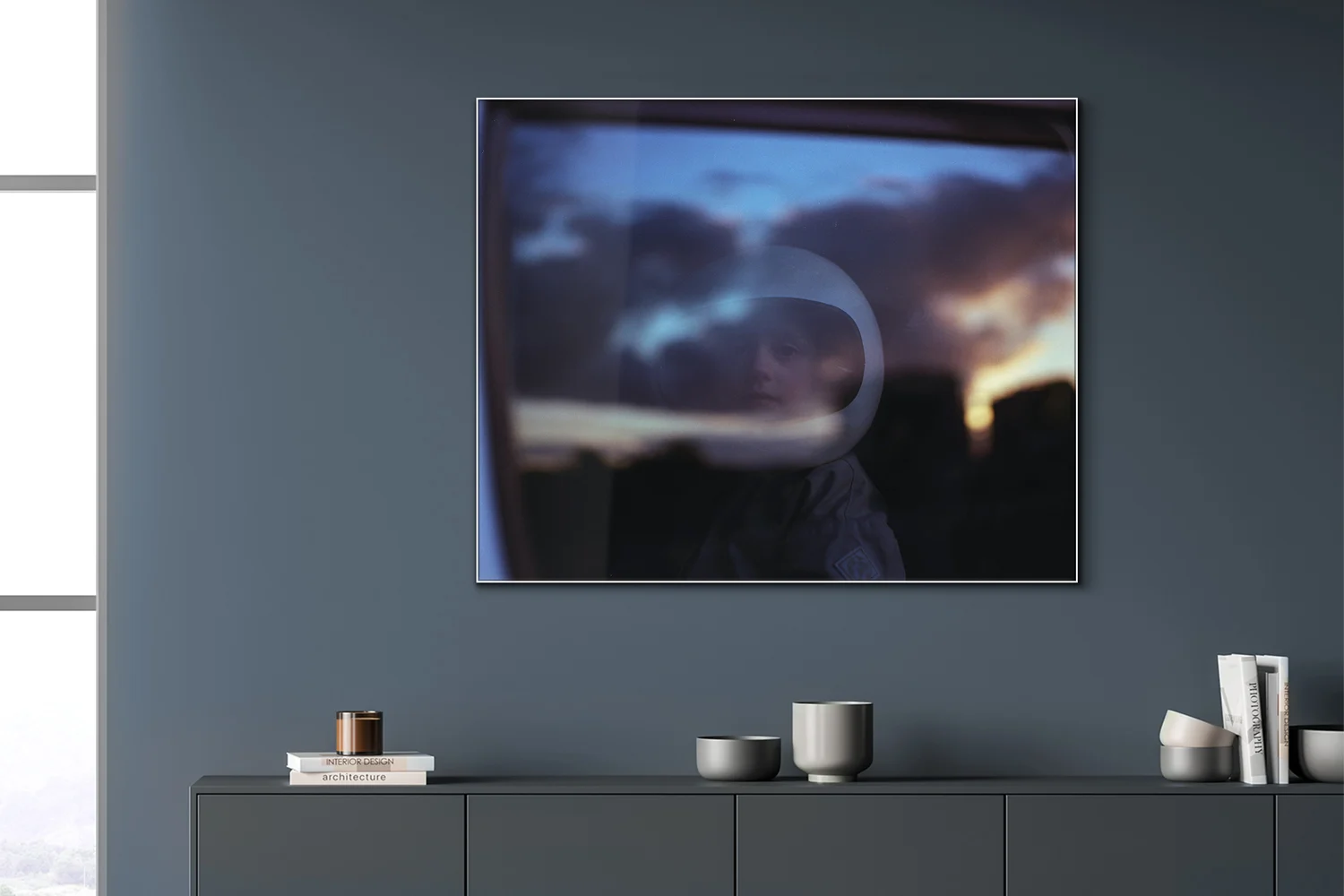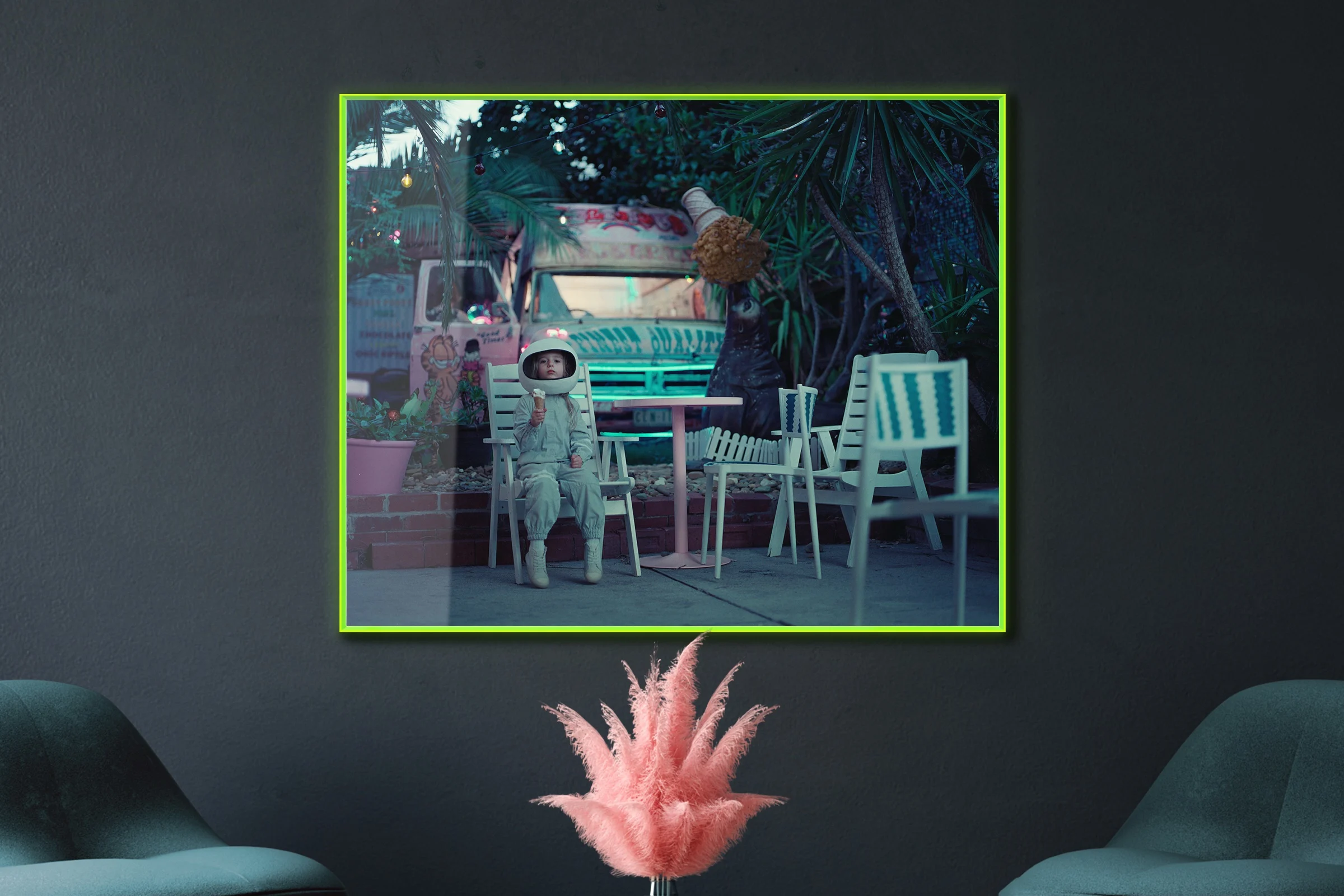Short profile
Andrew Rovenko is originally from Odessa in Ukraine, but moved to Australia more than fifteen years ago and now lives in Melbourne with wife Mariya and daughter Mia, the Rocketgirl. His photography project has won numerous international awards and Australian Photography Magazine selected Andrew as Photographer of the Year in 2021.
Read more about the structure of his working method, what inspires him and what he wants to capture forever with his photographs in this interview with WhiteWall.

5 QUESTIONS TO ANDREW ROVENKO
Can you tell us a little bit about how you became a photographer?
If what they say is true about our childhood being the core influencer of our interests later in life - it was probably the absence of cameras or any photographic skills in our household that served as the very first trigger.
On those rare occasions when my granddad would come for a visit with his half-frame camera (Chaika) - I was naturally drawn to this mysterious and magical device that I wasn’t allowed to use, which only made it thousand times more desirable.
So once I was old enough to get my own camera - the photographic journey started, first as a hobby. Then one thing after another, I was invited to freelance for a local lifestyle magazine, and this was really the best practical school anyone could wish for. The variety of assignments translated into experience in shooting all styles of photography “in the field”, and with every new edition that had my work published in it came a little bit more confidence to eventually start calling myself a photographer.

Photo: Andrew Rovenko
Please share something about your images. What is your special interest? How do you choose the colors, composition, themes etc.?
When it comes to colors - there are three equal parts: 1) knowing my film and how it responds to different lighting conditions, as this is what will ultimately render the palette of the final image; 2) the environment itself, interrogating the scene and what it has to offer - hues, textures, natural and unnatural light sources and how they might change throughout the day; 3) imaginary “look and feel” that forms a part of a photographer's visual identity, an internal benchmark. Combining these three inputs together helps to arrive at the end result, or assess whether it’s even worth taking the camera out of the bag.
Themes require a slightly more philosophical answer. Photography has the amazing power of combining two very different elements - capturing and preserving time and memories, while also being an artistic outlet for self expression and creativity. So for me, themes and compositions come as reflections of personal experiences, as we generally want to preserve things that we consciously or subconsciously see as valuable at the time, and with some luck - the feelings that are on our mind might find their way into the images too (this is where the artistic side of photography is really invaluable).

Photo: Andrew Rovenko
Where does this interest come from?
Life itself is the endless supplier of new experiences, and I hope that I’ll maintain enough curiosity to keep exploring them through photography. Early on, figuring out technical aspects and learning skills were the first big motivators, as just being able to take consistently good quality images seemed like a big and rewarding achievement in itself.
Later, there was a big chapter of travelling the world and absorbing new cultures and places - these were the most eye opening and impactful experiences to turn focus to.
And now I’m at the stage when my universe revolves around parenthood and everything that it brings - seeing the world through the eyes of a child, the daily joys and the worries, as well as hopes and uncertainties about the future we’re leaving for generations ahead.

Photo: Andrew Rovenko
How do you get inspired? And what inspires you the most? Films, books, or magazines? Or what surrounds you?
We’re stimulated by visual information as never before in history, being able to discover and consume the best (and the worst) of creative work from all over the world, present and past. This makes it very difficult to attribute my sources of inspiration to anything specific, as I feel that my perception is being continuously moulded by everything I come across, good and bad (sadly these days it’s mostly on the screen of my phone).
And of course with me growing up in the 80s and 90s - there’s always a hint of nostalgia for those simpler times, and it’s a good source of inspiration to tap into as well.

Photo: Andrew Rovenko
What are your plans for the rest of the day?
My desk has long been in need of a tidy up from all the random things that keep taking over every bit of space there, which means that I’ll end up keeping myself busy with anything else but the actual task at hand (and answering the interview questions was probably another way to avoid doing it🤦).




